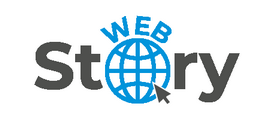As the hospitality industry continues to evolve, the risk of unexpected crises at the business or market level grows. Significant revenue streams, occupancy levels, guest trust, and more are all disrupted. Examples include natural disasters, global pandemics, economic recessions, and geopolitical shocks.The potential to act fast, and decisively when needed, has become critical, and channel manager capabilities have established themselves as critical tools in successful crisis response efforts. This article examines how these cutting-edge solutions are essential for navigating challenging times because they help businesses reduce risks, streamline operations, as well as eventually overcome even the most difficult obstacles.
1. The Resilient Foundation: Hotel Channel Manager Systems
Having a strong and durable technological foundation is critical during crises that rock the hospitality sector.Hotel channel manager systems become that rock solid foundation, giving companies the resources alongside capacities they need to get through even the most difficult of times. In addition to streamlining distribution procedures, these cutting-edge systems provide a centralised command centre for crisis management initiatives.
Hoteliers and travel agencies can easily coordinate inventory updates, rate modifications, and communication across multiple channels with channel managers in charge, guaranteeing consistency along with prompt responses to changing circumstances. These systems’ real-time visibility and control enable businesses to take quick, well-informed decisions that minimise disruptions and maximise opportunities. Additionally, channel manager systems’ integrations with analytics programs, booking platforms, and revenue management systems improve their crisis management capabilities even further by offering insightful data-driven forecasts as well as forecasting that help inform strategic decision-making.
2. Real-Time Inventory and Pricing Agility
The capacity of channel manager systems to enable real-time inventory and pricing adjustments across multiple distribution channels is one of their greatest benefits during emergency situations. In case of unforeseen disruptions, such as trade barriers or falling demand, company’s response should be immediate and it should disrupt their products and services in the shortest term possible to meet changing market requirements: Channel managers make it a snap for hoteliers and travel providers to disrupt their room supra, rates, and restrictions on all connected global distribution systems, direct booking channels, and online travel agencies with one simple click.
businesses can respond quickly to changing market situations due to their dexterity. They can close out inventory or modify prices to reduce losses or take advantage of new opportunities. For example, in the event of a global health emergency, accommodations can quickly limit reservations in order to adhere to regional laws or provide reduced rates in order to draw visitors during times of low demand. On the other hand, companies can quickly reopen inventory as well as modify prices following a natural disaster in order to support relief efforts or host displaced travellers.
3. Centralised Distribution Management
Ensuring operational efficiency and guest satisfaction during times of crisis requires efficient communication and coordination. By serving as a centralised hub, channel manager systems simplify the distribution management procedure over a variety of channels. In addition to streamlining inventory along with rate updates, this centralised approach guarantees accuracy and consistency across all platforms, reducing the possibility of overbookings, inconsistent rates, or lost opportunities.
It is a channel manager that enables companies to respond efficiently and timely to altering situations by optimising the flow of critical data and news to partners, their staff, and visitors. Moreover, such sync is the most critical in a calamity because timely news spread could restrain the catastrophe and, what is more important than that, improve the stakeholders’ connections.
4. Data-Driven Decision Making and Analytics
Making decisions based on data is frequently necessary to navigate through crises in order to create winning plans and distribute resources effectively. Businesses can gain valuable insights into their performance across multiple channels with the help of channel manager systems, which excel in providing comprehensive reporting along with analytics capabilities. Even in times of disruption, hoteliers and travel agencies can obtain a comprehensive understanding of booking patterns, channel performance, and revenue streams with the help of user-friendly dashboards and customizable reports.
With the use of these insights, companies can recognize new trends, identify problem areas, and decide on the best course of action for their distribution plans. In fact, to support business, mitigate the consequences of crises, and even to pave the way for a faster revival, advanced channel managers may provide predictive analytics and forecasting facilities. Producers will analyse the course of demand in the future and will be able to prepare their pricing policy and optimise warehousing.
5. Enhancing Online Visibility and Market Reach
Sustaining a robust online presence and broad market reach is imperative in times of crisis to draw in prospective guests alongside encouraging bookings. Channel manager systems are essential for increasing a property’s online visibility because they allow rates and inventory to be easily distributed to a large number of OTAs and GDSs. A company’s reach is broadened by this enhanced visibility, which also makes it possible to take advantage of new market trends as well as earn significant last-minute reservations.
Furthermore, channel managers frequently incorporate travel review sites and metasearch engines, which increases a property’s online presence. Even in difficult times, businesses can effectively showcase their offerings, reach specific demographics, and ultimately increase bookings as well as revenue by utilising these potent distribution channels.
6. Fostering Operational Efficiency and Guest Satisfaction
While reducing risks and maximising revenue streams are the main goals of crisis management initiatives, channel manager systems are also essential for improving operational effectiveness alongside guest satisfaction, two important aspects that support a company’s long-term viability and resilience.
Channel managers reduce the administrative strain of managing multiple booking channels, lower the possibility of human error, and free up critical staff time to concentrate on providing great guest experiences by automating along with streamlining processes. Additionally, channel managers ensure that reservations, preferences, and special requests made by guests are accurately recorded and reflected across all touchpoints, fostering a smooth and customised experience from the time of initial booking to check-out. They accomplish this by facilitating seamless communication between a property’s systems as well as various booking channels.
Conclusion
Crises are an unfortunate reality that businesses in the dynamic and frequently unpredictable hospitality industry must be prepared to face. However, hoteliers and travel agencies can confidently navigate challenging times by utilising the power of channel manager system, reducing the impact of disruptions, as well as emerging stronger on the other side.

